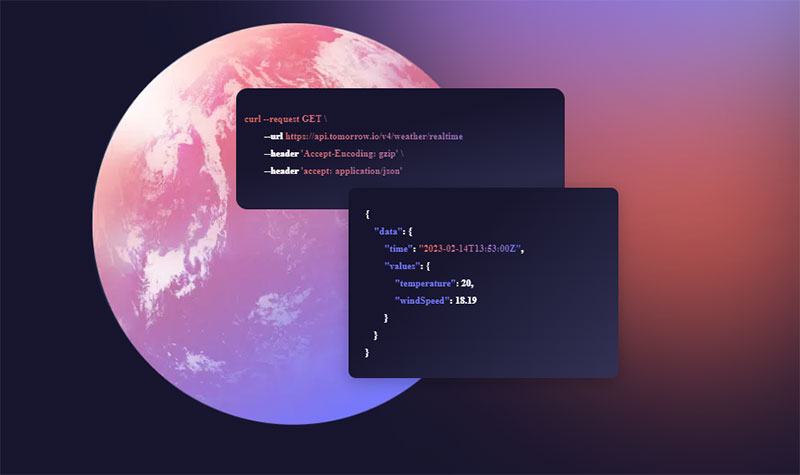Navigating the Future of Financial Software: Key Insights

Financial software is all about money management. It’s like your personal assistant, a whiz kid, but for your financial matters. Helps you track, manage, process, and analyze everything related to your money. It’s a game-changer for businesses and individuals.
Why’s it so important? Think about this – it takes care of the boring stuff (like data entry and reconciling figures), gives you clear snapshots of your financial health, and alerts you about potential issues. Trust me, it’s a lifesaver.
Overview of the Current Financial Software Landscape
Welcome to the world of today’s financial software, and boy, it’s quite a sight. Picture a sprawling tech city with skyscrapers representing different software solutions. You’ve got everything from basic accounting tools to advanced platforms with real-time data analytics and artificial intelligence capabilities.
All aiming to empower users to handle their finances more effectively and efficiently.
The Significance of Staying Updated with Financial Software Trends
Picture yourself cruising on the highway. You want to be in the fast lane, right? The same goes for financial software. It’s constantly evolving, and staying updated is crucial.
Ever heard of the term “In the know”? That’s where you want to be. Stay ahead, ride the wave, and make the most of the benefits. If you’re not with the trends, it’s like being stuck in a time machine set to the past. Trust me, that’s not where you want to be.
Evolution of Financial Software
Just like your favorite superhero, financial software has an origin story. Yeah, it’s pretty epic. Let’s take a trip down memory lane.
Early Developments in Financial Software
Spreadsheet-Based Solutions
Imagine a time before the internet. Wild, right? Back then, we did things old school. Paper and pen, or at best, rudimentary software to organize data in columns and rows. Enter spreadsheets. They revolutionized how businesses managed their books. But man, it was tedious. Talk about manual labor!
Basic Accounting Software
As technology evolved, so did financial tools. Soon, we saw software designed specifically for accounting tasks, including accounts payable automation software. A new age had dawned. This software was like an army of robot accountants – doing the hard work, so you didn’t have to. These guys made life much easier, but they were just the beginning.
Advancements in Financial Software Technology
Cloud-Based Solutions
Fast forward to the digital era. No more floppy disks, thank goodness. The cloud swept in and changed everything. Financial software now lived on the internet! You could access your financial data from anywhere, anytime. No longer chained to the office desk. Freedom at last!
Artificial Intelligence and Machine Learning Integration
Now, here’s where things get crazy. Imagine a software that doesn’t just automate tasks, but actually learns and makes decisions. Artificial Intelligence (AI) and Machine Learning (ML) have entered the scene, and boy, are they making waves.
Financial software with AI and ML can analyze data, spot trends, make predictions, and even offer advice. All on its own. It’s like your software just went to university and graduated with honors. A brave new world, indeed.
Key Features of Modern Financial Software
What’s a superhero without superpowers, right? So let’s talk about the super cool features that modern financial software brings to the table.
Automation and Streamlining of Financial Processes
Automated Data Entry and Reconciliation
Alright, you know the drill. Input data, double-check, rinse, repeat. Sounds exhausting, doesn’t it? But guess what? Today’s financial software can do this all on its own. It’s like having a robot secretary who never takes a break. Slick, huh?
Invoice and Expense Management
Picture this. All your invoice templates and expense reports, neatly organized, updated in real time, and stored safely. No more shuffling papers, no more “Oops, I lost that bill”. This feature is a real life-saver, especially for businesses. A beneficial strategy involves the adoption of an invoicing app to optimize and stabilize your cash flow.
Real-Time Data Analytics and Reporting Capabilities
Customizable Financial Reports
Remember those boring old reports with lines and lines of numbers? Ugh, headache. But here’s the cool part – modern financial software lets you customize your reports. Fancy a pie chart or a trend line? You got it. The best part? It’s all in real time. No waiting for end-of-month reports. Cool, right?
Predictive Analytics for Informed Decision-Making
Predictive analytics is like a magic crystal ball, but a scientifically accurate one. It uses your financial data to forecast future trends. Need to know if it’s a good time to invest in that cool new startup? Let predictive analytics guide you.
Enhanced Security Measures
Multi-Factor Authentication
You wouldn’t leave your house unlocked, would you? Same goes for your financial data. Multi-factor authentication is like a lock with multiple keys. Only you have all the keys, making your financial data safer.
Blockchain for Data Integrity
Blockchain. Sounds cool, right? It’s even cooler than it sounds. It’s a unique way of storing data that makes it virtually tamper-proof. It’s like a bulletproof safe for your financial information. Just what you need in a world full of hackers.
The Role of Artificial Intelligence in Financial Software
Step aside, humans. AI is here, and it’s making waves in the financial world. But what exactly is AI doing in your financial software? Let’s dive in!
AI-Driven Financial Planning and Forecasting
Efficient Budgeting and Forecasting
Imagine having your own personal finance guru. Someone who knows your spending habits, your income, your goals, and can guide you on how to budget and plan for the future. Now, imagine all of that, but it’s AI, not a human. Pretty rad, right?
AI-Powered Financial Risk Assessment
AI isn’t just about making life easier. It’s also about making it safer. With its super brain-like capabilities, it can scan through tons of data and identify potential financial risks. It’s like a financial bodyguard, always on guard, always ready to protect.
AI-Driven Investment Management
Robo-Advisors and Personalized Investment Advice
Robo-advisors sound like something out of a sci-fi movie, right? Well, they’re very real, and they’re changing the game of investing. Using AI, these guys analyze market trends and your financial goals to give you personalized investment advice. It’s like having a Wall Street expert in your pocket.
Algorithmic Trading and Its Impact
Algorithmic trading, aka algo-trading, is when AI systems are used to decide when to buy or sell stocks. These algorithms analyze market trends, historical data, and current news to make these decisions. No human emotions, no biases, just pure data-driven decisions.
Compliance and Regulation in Financial Software
Did you know that financial software is kind of like a rebellious teenager? It has to follow some strict rules to stay out of trouble. Let’s take a look at these rules and how financial software stays on the straight and narrow.
Overview of Financial Regulations Impacting Software Development
GDPR and Data Privacy Concerns
Everyone’s talking about privacy these days, and for good reason. With GDPR (that’s short for General Data Protection Regulation), your financial data is like a secret diary. Only you decide who gets to read it. And financial software has to respect that.
Financial Reporting Standards (e.g., IFRS, GAAP)
There are some heavy-duty rulebooks in the finance world, like IFRS and GAAP. These lay down the law on how financial info should be reported. Financial software has to play by these rules too, to keep everything legit and above board.
Ensuring Compliance in Financial Software Solutions
Think of auditing and tracking features as the CCTV cameras of financial software. They keep a record of all the activity, making sure there’s no shady business going on. If something doesn’t add up, you’ll know about it.
Last but not least, financial software also has built-in tools to keep an eye on compliance.
The Integration of Financial Software with Banking Systems
So, you’ve got your financial software and your bank account. But did you know that they can work together, like a dynamic duo? Let’s talk about that!
Benefits of Integrating Financial Software with Banking Platforms
Seamless Transaction Processing
Imagine a world where you can make transactions without ever having to leave your financial software. Like, sending payments, receiving funds, or even transferring money between your own accounts. No need to hop over to your banking app. Now that’s what I call a smooth operation!
Real-Time Account Synchronization
Picture this. Your bank balance, right there in your financial software. Updated in real time, every time you make a transaction. Like a live scoreboard for your money. Isn’t that handy?
Security Challenges and Solutions in Integration
Encryption and Secure API Protocols
Now, with great power comes great responsibility. When you’re sharing data between your financial software and your bank, it’s got to be secure. That’s where encryption and secure API protocols come in. Think of them as the bodyguards for your data, always on watch.
Fraud Detection and Prevention
Last, but definitely not least, is fraud detection and prevention. This is like the alarm system for your financial software. If something doesn’t look right, it’ll ring the alarm and stop the fraudsters in their tracks.
Future Trends and Innovations in Financial Software
But what’s next? I’ve got my crystal ball out, and here are some future trends and innovations that could be shaking up the world of financial software.
So yeah, the future is wide open with crazy stuff like decentralized finance and quantum computing on the horizon. Things are changing fast, and it’s more important than ever to keep an eye on these trends. Want to know more about who’s making this happen? Check out what’s going on here: https://www.luxoft.com/services/financial-software-development.
The Rise of Decentralized Finance (DeFi) Platforms
Smart Contracts and Automated Transactions
Imagine if your financial software could automatically manage transactions for you. With DeFi, this could be a reality. With the magic of smart contracts, transactions could happen automatically when certain conditions are met. It’s like having a personal assistant for your finances!
Decentralized Lending and Borrowing
Traditional banks might soon have some competition! DeFi platforms are changing the game, enabling peer-to-peer lending and borrowing. You could lend or borrow directly through your financial software. No middleman required. How’s that for a game-changer?
The Emergence of Quantum Computing in Finance
Potential Applications in Risk Assessment and Optimization
Quantum computing. With its crazy processing power, quantum computing could optimize your finances and assess risks in a blink of an eye. It’s like turbo-charging your financial software.
Addressing Security Concerns with Quantum-Resistant Cryptography
But with great power comes great security concerns. Quantum computers could crack traditional encryption like a nut. That’s why financial software of the future might need to use quantum-resistant cryptography. It’s like a super-strong vault for your data. Because let’s face it, no one wants their data in the wrong hands.
Conclusion
From humble spreadsheet beginnings to AI-powered machines. It’s been one wild ride. And it’s not over yet. Financial software is only going to keep getting better. I don’t know about you, but I can’t wait to see what’s next.
Financial institutions have a pretty big part to play in all of this. They’re like the conductors of the financial software symphony. They’re shaping the future, one line of code at a time.
- Streamline Data Access with JavaScript’s for-in Loop - May 19, 2024
- Master Your Build: Essential Java Build Tools - May 19, 2024
- Stay Connected With Messaging and Chat Apps Like Messenger - May 18, 2024








